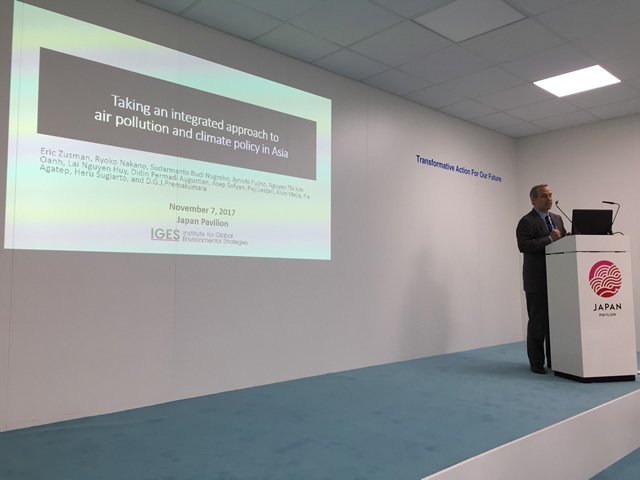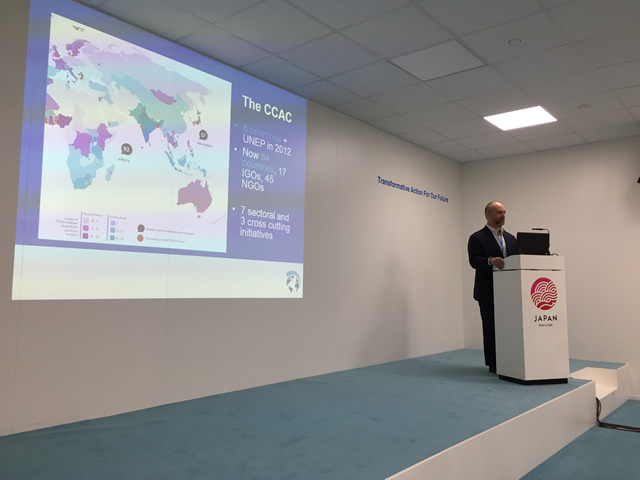
10:30 - 12:00
| Event title | Integrated Air Pollution and Climate Change Policies in Asia |
|---|---|
| Contents | Integrated solutions to air pollution and climate change have the potential to solve two of Asia’s biggest problems. This potential has led researchers and international organizations to call for governments to adopt solutions that simultaneously improve air quality and mitigate climate change. While these efforts have convinced some countries to take limited actions, there remains considerable more scope before policymakers regularly bring together climate change and air pollution into a single set of decisions. This raises the question that will be discussed in this session: what will take to make integrated approaches to air pollution and climate change mainstream in Asia? |
| Keywords | Climate Change, Air pollution, Co-benefit approach, SDGs |
| Speakers Name and Title |
|
| Organiser / Co-organiser |
|
Taking an Integrated Approach to Climate Change and Air Pollution in Asia
The session began with a framing presentation from Eric Zusman that set the context by highlighting the growing interest in co-benefits from more integrating climate change and air pollution policies in Asia. The presentation suggested that this growing interest is related to research quantifying the costs and benefits of climate change and air pollution policies; the emergence of work on short-lived climate pollutants (SLCPs); and the opportunities to achieve co-benefits in key sectors such as the transport and forestry sector.
The second presentation, from Ms. Tomoko Ishikawa, highlighted important interactions between climate actions and the Sustainable Development Goals (SDGs). She noted that these interactions can be positive (synergies) or negative (trade-offs) and pointed to specific examples in the transport sector where there were synergies.
Nathan Borgford-Parnell followed with a review of activities that the CCAC is supporting to promote the multi-benefits of reducing short-lived climate pollutants (SLCPs) in Asia. He underlined the CCAC’s work on municipal solid waste; black carbon inventories; the regional assessment (air pollution solutions report); the pathway approach.
Elisa Lanzi then presented on recent research that the OECD is conducting on the combined costs of air pollution and climate change globally. She noted that OECD modelling suggest that these costs are quite high in Asia. For instance, in China and India the combined costs were estimated to be about 7% of GDP by 2060.
Bhaskar Kharky gave the final presentation in which he discussed air pollution from forest fires in Asia. He observed that, though many governments have laws banning the burning of forests, they are difficult to enforce. He argued for a greater emphasis on carefully designed incentives that can be offered to communities to manage forests sustainably.
Eric Zusman and Kaoru Akahoshi, IGES


Copyright Ministry of the Environment Government of Japan. All rights reserved